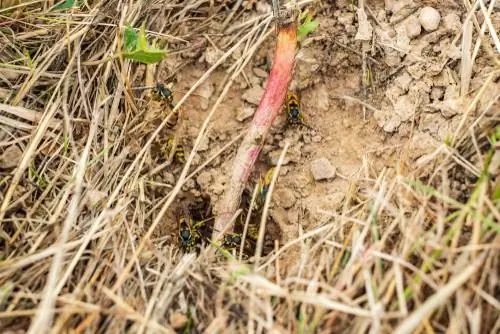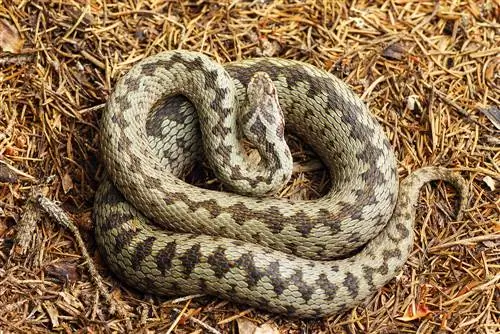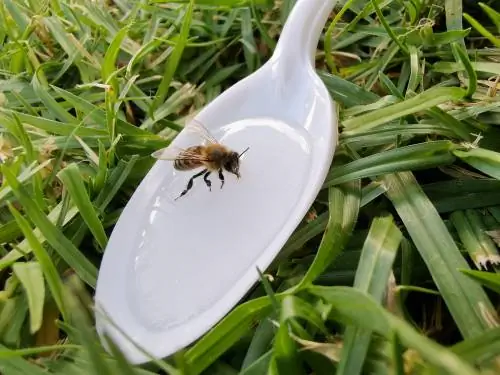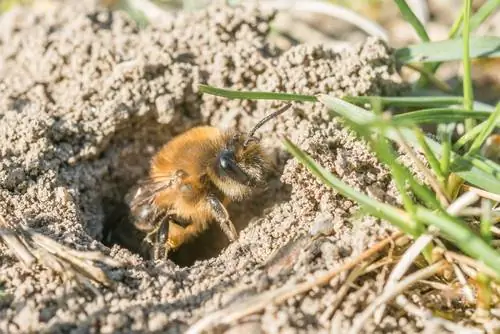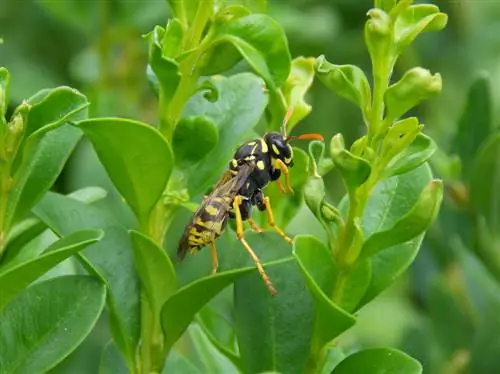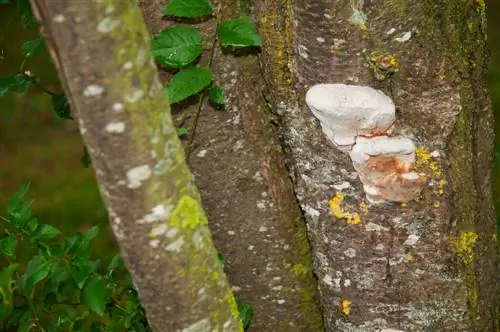- Author admin leonars@hobbygardeners.com.
- Public 2023-12-16 16:46.
- Last modified 2025-01-23 11:22.
If more and more wasps cross your path in the garden over the course of the summer, a nest may have settled. If it is planted in garden soil, this can be quite critical. How you should behave in this case is above all: cautious and calm.
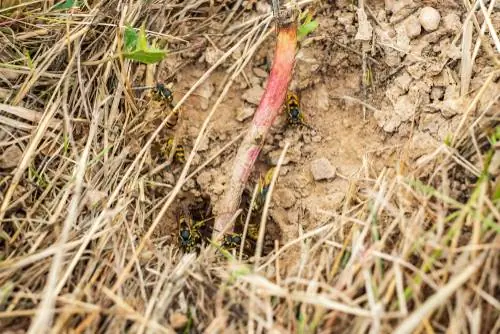
How do I deal with earth wasps in the garden?
If you have earth wasps in your garden, you should remain calm and passive to avoid disturbing them. Since wasps are protected species, they must not be intentionally harmed or killed. Distractions such as overripe fruit or unpleasant-smelling plants such as lavender, thyme or basil can be helpful. In an emergency, an authority can authorize a beekeeper to relocate the nest.
The characteristics of earth wasps
Earth wasps are not actually a separate species name, but just a common term for wasps that nest in the ground. Species that do this in Central Europe are primarily the German wasp and the common wasp. However, they are not limited to underground shelters - they can also find their place in higher places such as roof trusses or roller shutter boxes.
An earth wasp colony exists from approximately April to October. Until around August, the queen and the workers prepare the breeding of new sexual animals, i.e. males and new queens, to secure the population in the following year. The most intense occurrence of wasps is therefore in August and September.
Wasps choose empty mouse or mole burrows or piles of stones as their domiciles in the earth.
To remember:
- Earth wasps are wasps that nest seasonally in the ground
- Wasp colony lasts from about April to October
- Possible domiciles: mouse or mole burrows, piles of stones
How to encounter earth wasps?
Wasps are wild animals and predators with stingers that can become quite uncomfortable, especially in large groups. When in contact with wasps, the motto is: Avoid starting a fight if possible. In general, behave calmly and passively and avoid any annoying countermeasures.
Wasps are also a protected species - intentional impairment, injury or killing is therefore subject to high fines. Anyone who absolutely cannot live with a colony of earth wasps in their garden - for example for allergy reasons or because there are small children living in the household - can obtain a control permit from the authorities and, for example, commission a beekeeper to relocate the nest.
Otherwise, you should take a prudent middle path. On the one hand, you can take gentle repelling measures, for example by using plants and oils in the garden that smell unpleasant to wasps. Anything essential is suitable, especially herbs such as lavender, thyme or basil and oils from lemongrass or rosemary.
It also helps to attract the wasps with overripe fruit to places where they are less of a nuisance. It's best to cordon off the area around the nest and try to tolerate the animals until the states clear up in autumn.

